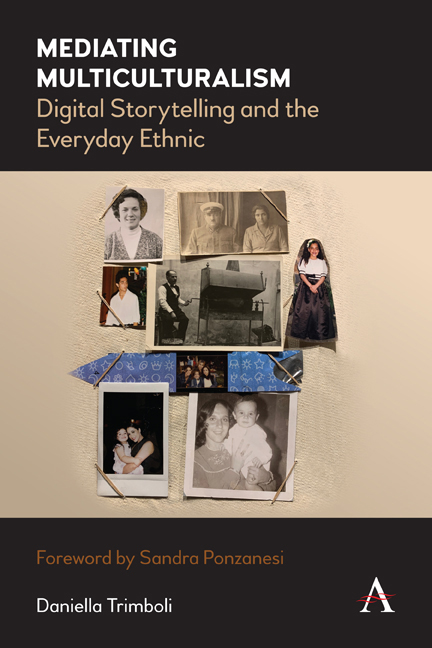Chapter Eleven - Digital Cosmopolitanisms, Diasporic Intimacies
Published online by Cambridge University Press: 21 August 2020
Summary
The other is what can only be imagined – as a coming community, as a planetary humanity, or even as ‘the earth’ – in its ‘absence’, while its presence can only be embraced in its concrete embodiment in every particular instance (in every individual or community). We engage with power for the sake of the other, an other that is always unknown but knowable, always abstract and yet concretized. This is the obligation to imagine an other world, and to an imagination that can only be produced through the concrete effort to bring it about, to embody it in the concrete practice of relationship as belonging together. It is there that ethics and politics, practice and desire, meet. And that, for me at least, is the driving force of cultural studies.
– Grossberg (2010a, p. 100)During a panel discussion at a 2014 arts conference, Shakthi Sivanathan, director of Curious Works, argued that cultural diversity is a revolution. For Sivanathan, the revolution will occur when cultural diversity becomes redundant. In this final chapter, I linger on Sivanathan's claim that cultural diversity acts as both potential revolution and future redundancy, an idea which gets to the core of the dilemma plaguing migrant digital storytelling and multicultural work more broadly.
As I have been arguing throughout the book, there remains within contemporary multiculturalism and culturally diverse work a persistent tension, namely, the need to acknowledge cultural difference, on the one hand, and the realisation, on the other, that persistent acknowledgement of cultural difference reinforces the border between dominant cultures and Others. As Gunew (2005, p. 365) succinctly summarises: ‘In the long run, all such activities to change power relations amount to an all-or-nothing paralysis that ultimately serves to shore up binarism, that is, the assertion of any kinds of difference runs the risk of being relegated to abject liminality.’ This contradictory dilemma is not a new problem and race and ethnic scholars have explored it routinely in the twentieth century. However, the problem has resurfaced in the twenty-first century in new, more exaggerated ways, exacerbated by increased mobility, transient migration patterns and multifarious points of identity.
By bringing a critical cosmopolitanism model into dialogue with diasporic intimacy, I propose in this chapter an alternative approach of migrant digital storytelling and cultural work at large.
- Type
- Chapter
- Information
- Mediating MulticulturalismDigital Storytelling and the Everyday Ethnic, pp. 179 - 188Publisher: Anthem PressPrint publication year: 2020



